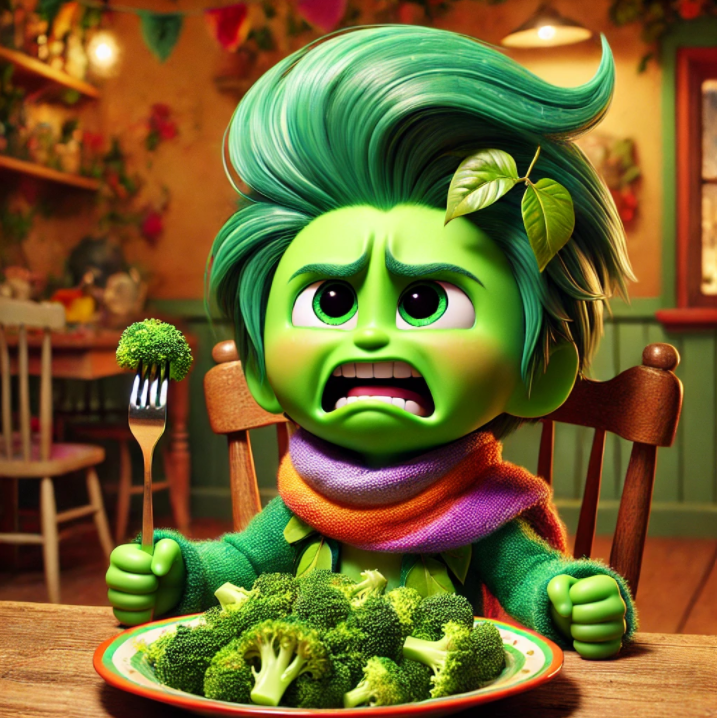Your Mini-Me is like Disgust from Inside Out when it comes to eating Vegetables? No worries… you can boost vegetable consumption by combining hands-on activities and educational approaches!
Vegetables are The Superheroes of Your Mini-Me’s Diet
Vegetables are like tiny powerhouses, packed with nutrients that help kids grow strong, smart, and healthy.
Scientific research has shown that a diet rich in fruits and vegetables offers a multitude of benefits for children’s health and development, including: Improved brain Functions, Reduced Risk of Chronic Diseases, Healthy Weight Management, Stronger Immune System.
Early childhood is a sensitive period for development of food preferences, with patterns of food refusal commonly beginning around 2 years of age. Food patterns established in early childhood have been shown to track into adulthood, therefore, encouraging your Mini-Me to eat a variety of colorful vegetables, you’re investing in their long-term health and well-being!
What if my Mini-Me has developed a “Disgust” attitude?
No worries! A study, designed by NIH (National Institute of Health) to increase vegetable consumption among young children (0-10 Years), showed that it is possible to influence Mini-Me exposure to and liking of vegetables!!
So, it’s matter of believing and being persistent!
So…. how can you overcome you Mini-Me vegetable refusal?
Try introducing your Mini-Me to a target vegetable for several days (in the study they reccomended 14 days). Present the whole uncooked vegetable, talking about how it grows, preparing it in front of your MIni-Me, offering it to Mini-Me, and giving Mini-Me a sticker or other reward for trying it.
Keep trying, w/o forcing… you will finally see some improvements. Maybe not for all vegetables, but research has demonstrated that daily taste exposure can increase children’s acceptance of unfamiliar or moderately disliked foods.
Additionally you might try and engage your Mini-Me in planting, growing and harvesting vegetables, as this was also shown to help Mini-Me develop familiarity and positive attitudes toward consuming vegetables.
Taste exposure is key to overcoming food aversions.
Persistence will lead to progress!!

REFERENCES
- NIH: Tiny Tastes
- St. Pierre, Christine et al. Journal of Nutrition Education and Behavior, Volume 56, Issue 1, 4 – 15. 10.1016/j.jneb.2023.10.012


